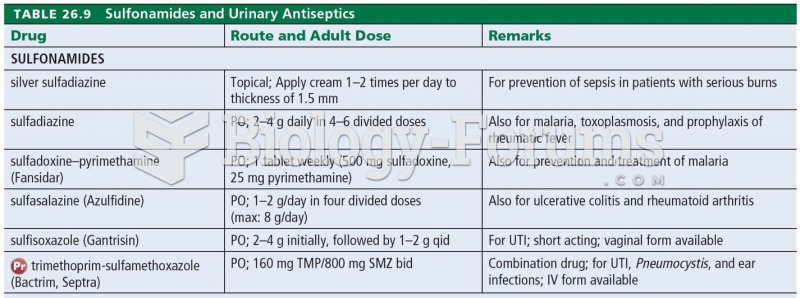|
|
|
For about 100 years, scientists thought that peptic ulcers were caused by stress, spicy food, and alcohol. Later, researchers added stomach acid to the list of causes and began treating ulcers with antacids. Now it is known that peptic ulcers are predominantly caused by Helicobacter pylori, a spiral-shaped bacterium that normally exist in the stomach.
Human kidneys will clean about 1 million gallons of blood in an average lifetime.
Fewer than 10% of babies are born on their exact due dates, 50% are born within 1 week of the due date, and 90% are born within 2 weeks of the date.
Cancer has been around as long as humankind, but only in the second half of the twentieth century did the number of cancer cases explode.
The calories found in one piece of cherry cheesecake could light a 60-watt light bulb for 1.5 hours.







